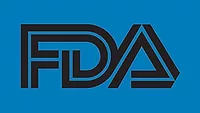FDA, CBP Partner to Test How Unique Facility Identifiers Can Improve Traceability

Image credit: David Vives via Unsplash
The U.S. Food and Drug Administration (FDA) has partnered with U.S. Customs and Border Protection (CBP) to expand the focus of the Global Business Identifier (GBI) Test, which is examining how identifiers—unique numbers that capture information about legal business entities and their functions—can be leveraged to address a range of supply chain traceability needs for government and industry. The GBI Test originally commenced on December 19, 2022, and will now continue through February 23, 2027.
CBP will work jointly with FDA to explore how identifiers could be leveraged to enable coordination and harmonized decision making across the U.S. government. The test is intended to evaluate the feasibility of utilizing GBIs to address data gaps caused by the unreliability of the manufacturer or shipper identification code (MID), in addition to exploring opportunities to enhance supply chain traceability and visibility more broadly—including examining how CBP, partner government agencies, and industry might leverage GBIs to comply with growing supply chain traceability requirements.
The GBI Test is examining three different Unique Facility Identifiers (UFIs) for establishments that import food into the U.S., one of which is GS1’s Global Location Number (GLN), a required UFI for food facilities registered with FDA. The other two identifiers are The Data Universal Numbering System (DUNS) from Dun & Bradstreet (D&B) and The Legal Entity Identifier (LEI) from the Global Legal Entity Identifier Foundation (GLEIF). Under the test, traders can voluntarily submit one or more of the three identifiers for certain party types on an entry (manufacturer, shipper, seller, exporter, distributor, and packager).
Throughout the course of the GBI Test, CBP will consider whether and how the three identifiers, alone or together, are capable of addressing CBP’s supply chain visibility and traceability goals. Moreover, CBP will examine whether the identifiers submitted to CBP during the GBI Test can be verified, reducing uncertainties that may be associated with the information related to shipments of imported merchandise.
In addition to a 3-year extension, the recent expansion of the GBI Test also removes commodity and country of origin limitations on the types of entries permitted to be evaluated under the test. Participants are welcomed to voluntarily transmit GBI data with their entry filings in exchange for the opportunity to share feedback with CBP and inform the ongoing evolution of the GBI Test, including potential benefits for GBI filers. Information on the GBI test, including instructions on how to participate, is available on CBP’s GBI test webpage.
Improving traceability for FDA-regulated products is an ongoing effort on the part of the agency. In November 2022, FDA issued the long-awaited Food Traceability Final Rule under the Food Safety Modernization Act (FSMA) Section 204(d), which is designed to facilitate faster identification and rapid removal of potentially contaminated food from the market, resulting in fewer foodborne illnesses and associated deaths. Industry must comply with the recordkeeping requirements of the rule on or before January 20, 2026.
“Traceability is key to the FDA’s mission," said FDA Assistant Commissioner for Import Operations Dan Solis about the agency’s partnership with CBP. "It enables us to leverage verifiable information at the supply chain level to identify risk and make admissibility decisions—ensuring the food, medicine, and other FDA-regulated goods entering the U.S. are safe and get to those who need them as quickly as possible."
Looking for quick answers on food safety topics?
Try Ask FSM, our new smart AI search tool.
Ask FSM →






.webp?height=200&t=1657568786&width=200)


